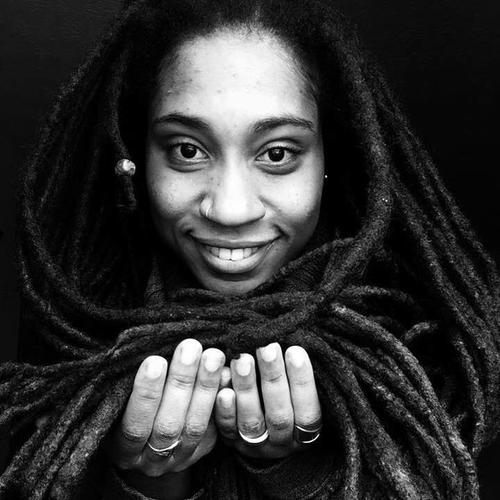
Liseli Fitzpatrick
Assistant Teaching Professor in Africana Studies
African Diasporic cosmologies, sacred ontologies; Afro-Caribbean cultural expressions and identity; slavery and the Afro-Atlantic world; sacred sexualities and gender.
Liseli A. Fitzpatrick is a Trinidadian poet and professor of Africana Studies. Her pedagogy is grounded in African Diasporic cosmologies, sacred ontologies, culture, and cultural expressions. Fitzpatrick teaches what she lives and lives what she teaches. Accordingly, she embodies and explores themes of love, sacred ritual, identity, community, (com)passion, belonging, home, wholeness, resilience, healing, liberation, and joy, and traces the voluntary and involuntary movement of African peoples and unearths the pervasive effects of slavery and colonialism in the fabrication of the ideo-political West.
Through her embodied and experiential teachings, Fitzpatrick seeks to engender emancipatory change by presenting a communal way of life and being in the co-creation of an equitable, just, breathable, and compassionate world. As such, Fitzpatrick’s sacred life’s work is fueled by her ongoing quest to dismantle oppressive constructs and eradicate systems of miseducation. As such, she values her place in the classroom and emphasizes the pedagogical importance of teaching to enlighten, encourage, enrich, enhance, and empower the lives on, of, and off the planet.
In May 2018, Fitzpatrick made history as the first Ph.D. in the Department of African American and African Studies (AAAS) at The Ohio State University (OSU) and is presently pursuing her second doctoral degree at The University of Trinidad and Tobago (UTT). In 2010, she earned a B.A. in Psychology (pre-Law) with a double-minor degree in African American and African Studies and Visual Communications, and, subsequently, she obtained a M.A. in AAAS, in 2012. During her tenure at The OSU, Fitzpatrick taught the early African Civilizations course sequence for seven consecutive years and was awarded a lectureship position while pursuing her Ph.D.
Prior to joining the academic community at Wellesley, in Fall 2018, Fitzpatrick spent one year at James Madison University (JMU) as the first Preparing Future Faculty Fellow and Visiting Lecturer in the Department of Philosophy and Religion while completing her doctoral degree. At JMU, Fitzpatrick taught the "Religions of Africa and the African Diaspora" course and presented public lectures on sacred sexualities and Ifá/Òrìṣa cosmology.
Fitzpatrick is passionate about cultivating sacred sanctuaries not defined by religiosity and is a cultural enthusiast at heart. Music, water expanses, service, and art enliven her Soul. Her rootedness in spirituality paired with her altruistic spirit informs her life path and dedication to humanity – spirituality, love, family, nature, altruism, and culture constitute and sustain the essence of her existence. Fitzpatrick’s undying love for her home country Trinidad and Tobago is also evident in her frequent travels to and involvement in national and cultural events, which led her to propose a Study Abroad Program in the cosmopolitan twin-island for Wellesley students.
Fitzpatrick is a member of several committees, organizations, and sisterhoods including the Wintergreen Women Writers' Collective, Ile Ase, and Ohemma Ku. She is a HistoryMakers 2022-2023 Faculty Innovations in Pedagogy & Teaching Fellow, HistoryMakers Master Mentor, and currently serves on the Board of Directors of the Resilient Sisterhood Project (RSP), Boston, MA, and the Roxbury Roots Montessori Inc. Board, Roxbury, MA.
Fitzpatrick is thrilled to be a part of the Department of Africana Studies and wider Wellesley community. She enjoys engaging with her students and is committed to positively contributing to the ethos and longevity of the College.
TEDxWellesley Talk: Speaking Truth to em(Power)!
Courses:
- Africans of the Diaspora
- Ancient African Civilizations to 1700s
- Black Pedagogies in the Americas
- The Black Church
- Black Studies at Wellesley and Beyond
- New World Afro-Atlantic Religions
- Val Gray Ward: The Power of Black Arts, Theatre, & Movement
- Caribbean Cultural Expressions and the Diaspora
Education
- B.A., Ohio State University-Main Campus
- M.A., Ohio State University-Main Campus
- Ph.D., Ohio State University-Main Campus